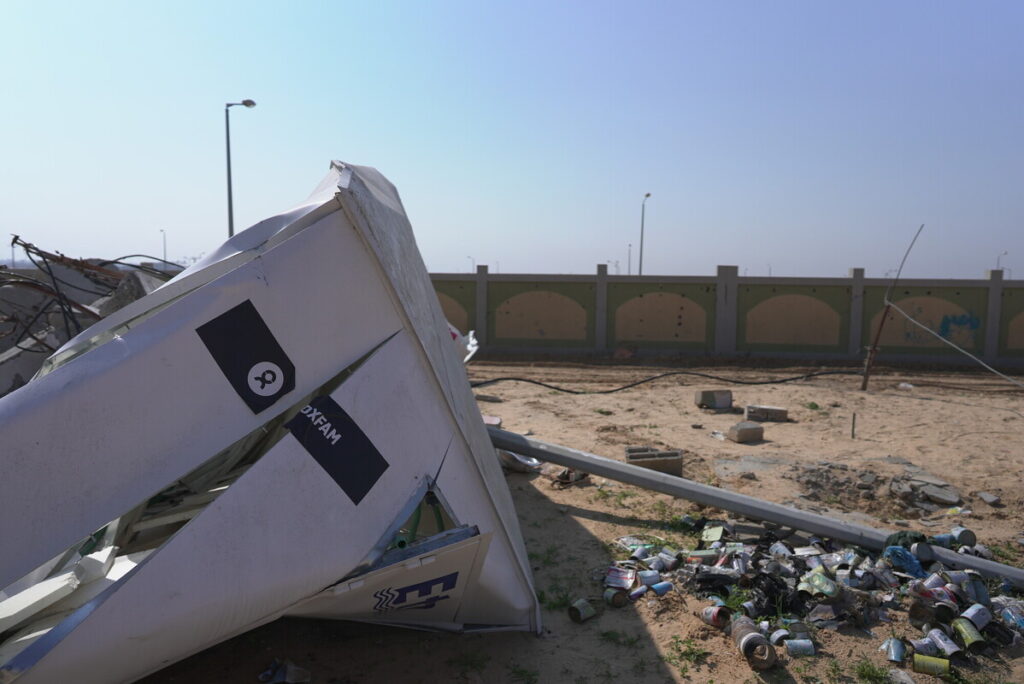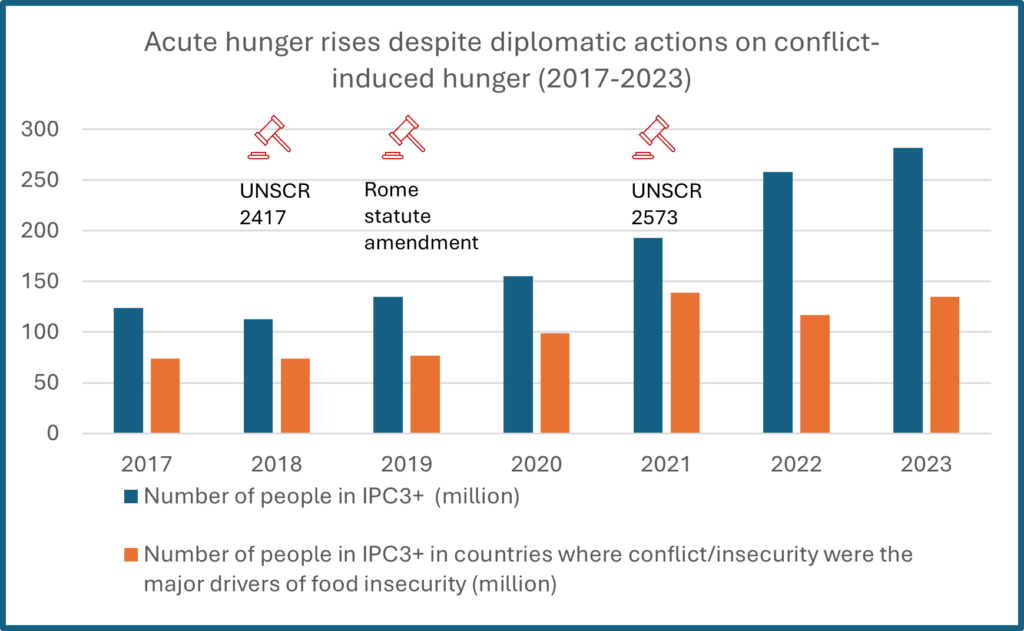Cities besieged, bakeries bombed, fields set alight: it’s time to end the use of starvation as a weapon of war
Cities besieged, bakeries bombed, fields set alight: it’s time to end the use of starvation as a weapon of war
The blockade of food, water and relief that has brought so much hunger and suffering to Gaza is the latest example of the growing use of starvation as a weapon of war, say Lawrence Robinson and Désirée Ketabchi. That’s why Oxfam has become a founding member of the Coalition Against Conflict and Hunger – a group of civil society organizations set up last year to end the deliberate use of starvation tactics in conflict and promote the protection of civilians and humanitarian space.

Across armed conflicts in recent years – in Gaza and beyond – starvation is increasingly being used as a weapon of war. That means more warring parties have been deliberately blocking access to humanitarian aid, using food and water as methods of control and collective punishment, and systematically destroying the means of survival for innocent civilians. What’s worse, this global trend has been met with little international political resistance and a growing sense of impunity.
International laws and norms flagrantly ignored
Long-established international laws and norms mean this should not be happening. In the wake of the Second World War, a period that saw organizations such as Oxfam emerge to campaign against blockades and hunger, significant commitments were made to outlaw the mass suffering of civilians in this way. With the Geneva Conventions, the Rome Statute (especially with its 2019 amendment), as well as UNSC Resolutions 2417 and 2573, the international community has repeatedly affirmed that the intentional starvation of civilians is a war crime and must be prevented.
Yet, despite these norms, violations are not only ongoing, they are escalating. In fact, we have seen a surge in people facing acute hunger (IPC3+) in conflict-affected countries where there are widespread violations of IHL, as illustrated by the data from the Global Report on Food Crises below:
Suffering is widespread and deadly. In the context of 281.6 million people in IPC 3+ in 2023, including 278 million people in conflict-affected situations, we estimate that conflict-induced food insecurity has been leading to between 7,784 and 21,406 deaths per day.

How blockades and besiegements became tactics used globally
Across armed conflicts, starvation has been a deliberate strategy; not simply an unfortunate outcome. We see whole regions under blockades, cities besieged, bakeries bombed, fields set alight, wells poisoned. Communities lose their sources of livelihoods, they flee to new areas for safety, and many become reliant on humanitarian aid (if it reaches them) to stay alive.
Despite humanitarian efforts, hundreds of millions of people globally remain food insecure and have to take unimaginable risks to keep their families alive. This prolonged deprivation leads not just to deaths, but to the destruction of the social fabric. Inequality shapes these crises and their aftermath. Women often eat least and last; children often die at double the rate of adults. The societal foundation for peace and recovery is weakened further.
The devastating effects on civilians has been clear to see in Gaza, where Israel has been using starvation as a weapon of war with impunity. According to Oxfam’s analysis and other independent investigations, this likely amounts to war crimes and grave violations of international law. Over past years, civil society has also documented attacks on farms, water facilities and fishers in Yemen, as well as observing the impacts of blockades and attacks on livelihoods on thousands of civilians in Burkina Faso.
A new coalition – and three steps for collective action
Clearly, existing strategies to prevent conflict-induced hunger and the use of starvation as a weapon of war are failing. There is an international prohibition on the use of starvation as a weapon of war in theory, but a lack of meaningful action to prevent it and punish it. Initiatives such as UNSCR 2417 have provided some foundations, but ultimately we need new, collective thinking and action.
We see three crucial next steps – early warning, early action, and accountability – for collective action from humanitarian actors, human rights organizations, diplomats and governments globally:
- Early Warning: Systematic, evidence-based monitoring and reporting on conflict-induced hunger, the use of starvation as a method of war, and related ways in which civilians’ livelihoods are being targeted during conflicts. Institutions must commit to reporting on this in a manner that avoids bias (or any accusations of double standards), recognizes the root causes and prompts swift action based on clear evidence.
- Early Action: Commitments to both political and humanitarian action to prevent conflict-induced hunger and civilian suffering. Mechanisms in the international and regional peace and security architecture must demonstrate more commitment to meaningful early action that seeks to prevent starvation tactics from developing, while the humanitarian system must adapt to enhance anticipatory action to prevent the worst outcomes.
- Accountability: Dedicated action to pursue justice and accountability to break the global cycles of violations and end impunity. Partnerships between governments, civil society and victim groups must emerge globally and in response to certain situations to pursue victim-centered justice. All actors must abide by their responsibilities under international law and use their capacities to hold perpetrators accountable (whether legally, financially, politically).
With the formation of the Coalition, there’s a new chance to organise collectively around these steps. By working together across the human rights and humanitarian sectors, civil society can play a key role in ending the use of starvation as a weapon of war.

